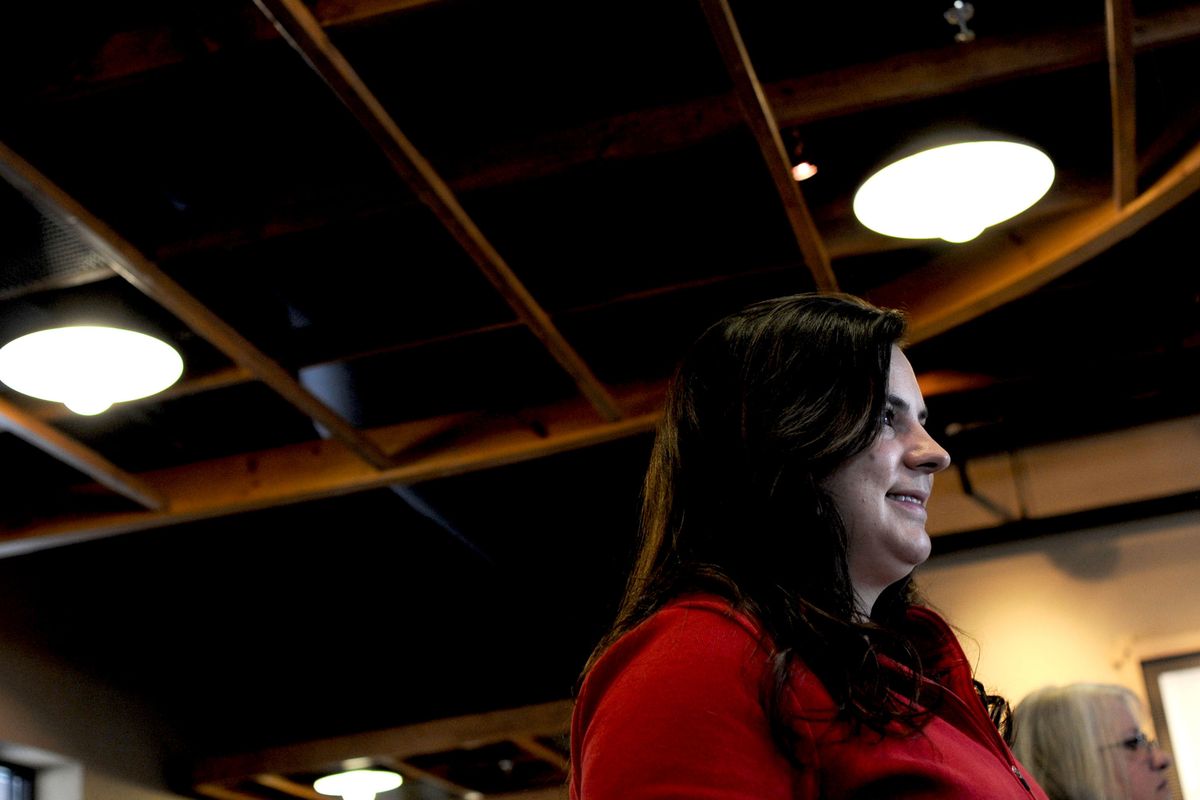Customer surveys help excellent employees keep jobs

People are checking in. They ask: When does the water park open?
People are checking out. They ask: How do we get back on I-90?
People already in their rooms call the front desk. They ask: Can we have more pillows, more blankets?
Beccy Hiatt, 54, answers the questions cheerfully, as if she’s hearing them for the first time.
Meanwhile, in an office behind the front desk, Kelley McElhenney, 26, is handling the calls for future reservations.
Potential guests ask: “Is the water park included in our stay?” Yes, she answers happily.
McElhenney and Hiatt get rave reviews on the lodge’s guest satisfaction surveys.
“To me it’s like a report card,” Hiatt says.
“It makes you feel that all your hard work is worth it,” adds McElhenney.
In this slow-jobs-creation recovery, customer service surveys matter more than ever.
“If an employer has people out there providing marginal customer service, there is someone with their face pressed against the window trying to take that job – and do a better job,” says Bill Robinson, owner of Robinson Research, a marketing research firm in Spokane.
Remember Labor Day, 2007? Idaho’s unemployment rate was below 3 percent; Washington’s below 5 percent. In Montana, McDonald’s offered livable wages.
Businesses sometimes had to settle for less-than-ideal employees – surly teens, arrogant 20-somethings, middle-aged slackers, crabby seniors.
By Labor Day 2009, an economic earthquake had doubled unemployment rates. Six people vied for every available job.
Businesses battled for their livelihoods.
“My world as an employer changed dramatically,” Robinson says. “There are things I put up with 10 years ago that I wouldn’t dream of putting up with today. There are hungry people who want to work.”
As unemployment rates multiplied, so did customer satisfaction surveys. Everywhere they go, consumers find them now. Some businesses offer rewards for filling them out.
A steakhouse chain, for instance, recently offered free onion rings if customers filled out an online survey. A big box store dangled the chance to win $1,000 gift cards. A retail chain enticed responses through 10 percent off on the next purchase.
But once filled out, what happens? Companies take them pretty darn seriously.
A $20 credit. That’s what Comcast customers get if a cable company technician fails to arrive within the promised appointment window. It’s part of an updated seven-point customer guarantee unveiled during the recession.
“There has been a lot more competition in our industry, between direct satellite and the telephone companies,” says John Dietrich, vice president of customer service and strategy for Comcast Washington.
“Customer service is a hotly contested battleground. Now more than ever, we are using the surveys.”
Comcast uses a variety of survey “instruments” that identify systemic issues that need addressing as well as pinpoint issues, positive and negative, with specific employees.
“At least once a quarter, we’ll recognize the top performers in front of the entire call center,” Dietrich says.
He says that one out of 500 customer service agents might need some “coaching” to improve: “We need to keep pushing that bar higher.”
Customer survey results are reviewed by managers at all levels.
“It is now tied into bonus plans,” Dietrich says. “When you get your reviews, the voice-of-the-customer survey scores are very much part of that. The entire management culture has skin in the game.”
Comcast trucks, as well as the trucks owned by competitor DirecTV, ask for feedback through “how’s-my-driving” decals.
Driver’s Alert is a Florida-based company that analyzes such data for companies throughout Canada and the United States, including in the Inland Northwest.
Gale Blackburn, the company’s vice president of marketing, urges the driving public, and pedestrians, to call in and report what they observe, both good and bad.
“Every one of the calls is recorded and sent to the supervisor of the driver,” she points out.
Mystery shoppers. These hired folks who pose as real shoppers can expose the best and worst customer-survey practices, says Robinson, who founded his research firm in 1991.
“A sleazy chain furniture store – now out of business – had us do mystery shops to (force) employees to do every sleazy sales technique imaginable,” he says. “If employees missed any of that, they were in a lot of trouble.
“Robinson Research said, ‘We’re not going to be part of this.’ ”
His company also did a mystery shop for a car manufacturer.
“The salespeople had a lot of latitude to be themselves,” Robinson remembers. “It wasn’t just a checklist that became robotic.
“If they did a really good job, the mystery shopper had the option of handing them a deluxe camera and saying, ‘Congratulations!’ ”
The best customer-survey practices encourage good workers to become even better, Robinson says. The worst add more doom to recession-weary gloom.
No gloom was in evidence at the front desk of Silver Mountain’s lodge one recent busy weekend.
Silver Valley towns have survived mining and tourism booms and busts, so its workers rarely take good jobs for granted.
“When someone comes through our door, they are my guest,” Hiatt said.
Co-worker McElhenney added: “If one of my customers is upset, I ask: ‘How can I make this better?’ And it’s normally something so simple.”